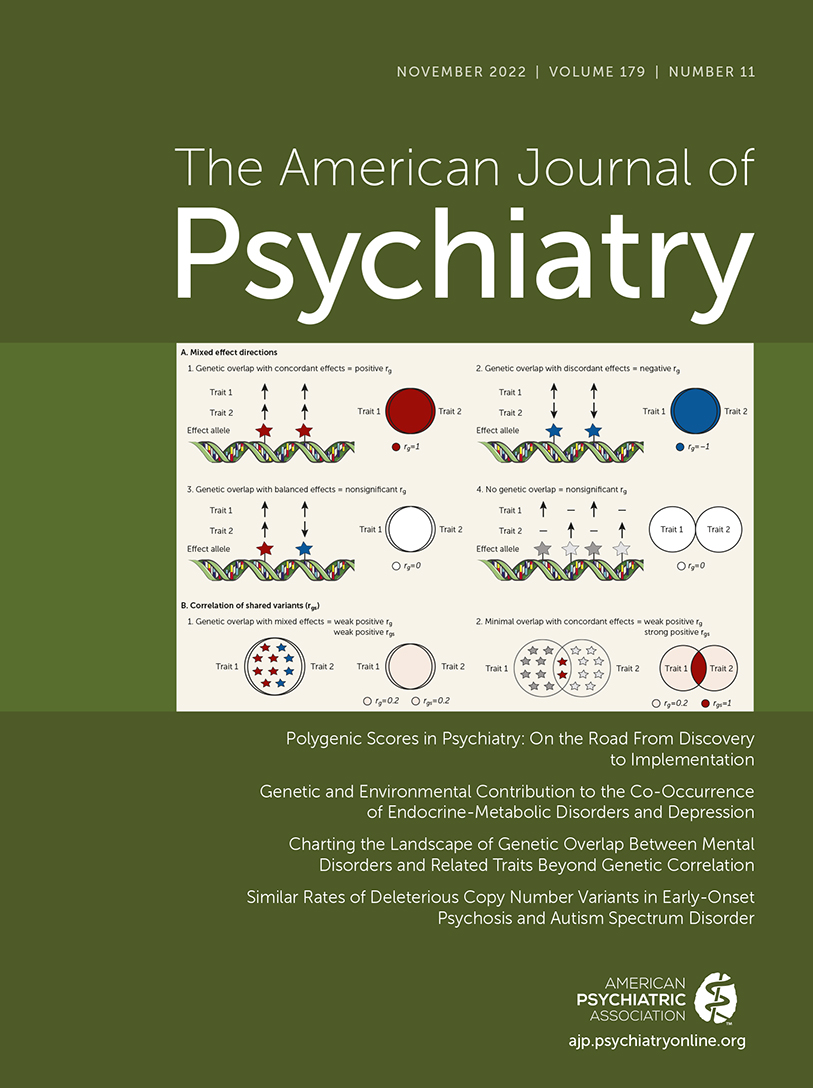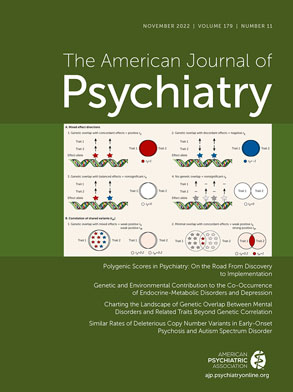Polygenic Risk Scores and Genetics in Psychiatry
Understanding the Shared Genetic Risk for PTSD, Depression, and Cardiovascular Disease
Factors Underlying the Comorbidity Between Endocrine and Metabolic Disorders with Depression
New Insights Into Shared Genetic Alterations Across Various Psychiatric Illnesses and Associated Traits
Polygenic Risk Scores Associated With Effective ECT Treatment for Major Depression
Copy Number Variants in Neurodevelopmental Disorders: Early-Onset Psychosis and Autism Spectrum Disorder
Conclusions
References
Information & Authors
Information
Published In
History
Keywords
Authors
Funding Information
Metrics & Citations
Metrics
Citations
Export Citations
If you have the appropriate software installed, you can download article citation data to the citation manager of your choice. Simply select your manager software from the list below and click Download.
For more information or tips please see 'Downloading to a citation manager' in the Help menu.
View Options
View options
PDF/EPUB
View PDF/EPUBLogin options
Already a subscriber? Access your subscription through your login credentials or your institution for full access to this article.
Personal login Institutional Login Open Athens loginNot a subscriber?
PsychiatryOnline subscription options offer access to the DSM-5-TR® library, books, journals, CME, and patient resources. This all-in-one virtual library provides psychiatrists and mental health professionals with key resources for diagnosis, treatment, research, and professional development.
Need more help? PsychiatryOnline Customer Service may be reached by emailing [email protected] or by calling 800-368-5777 (in the U.S.) or 703-907-7322 (outside the U.S.).

